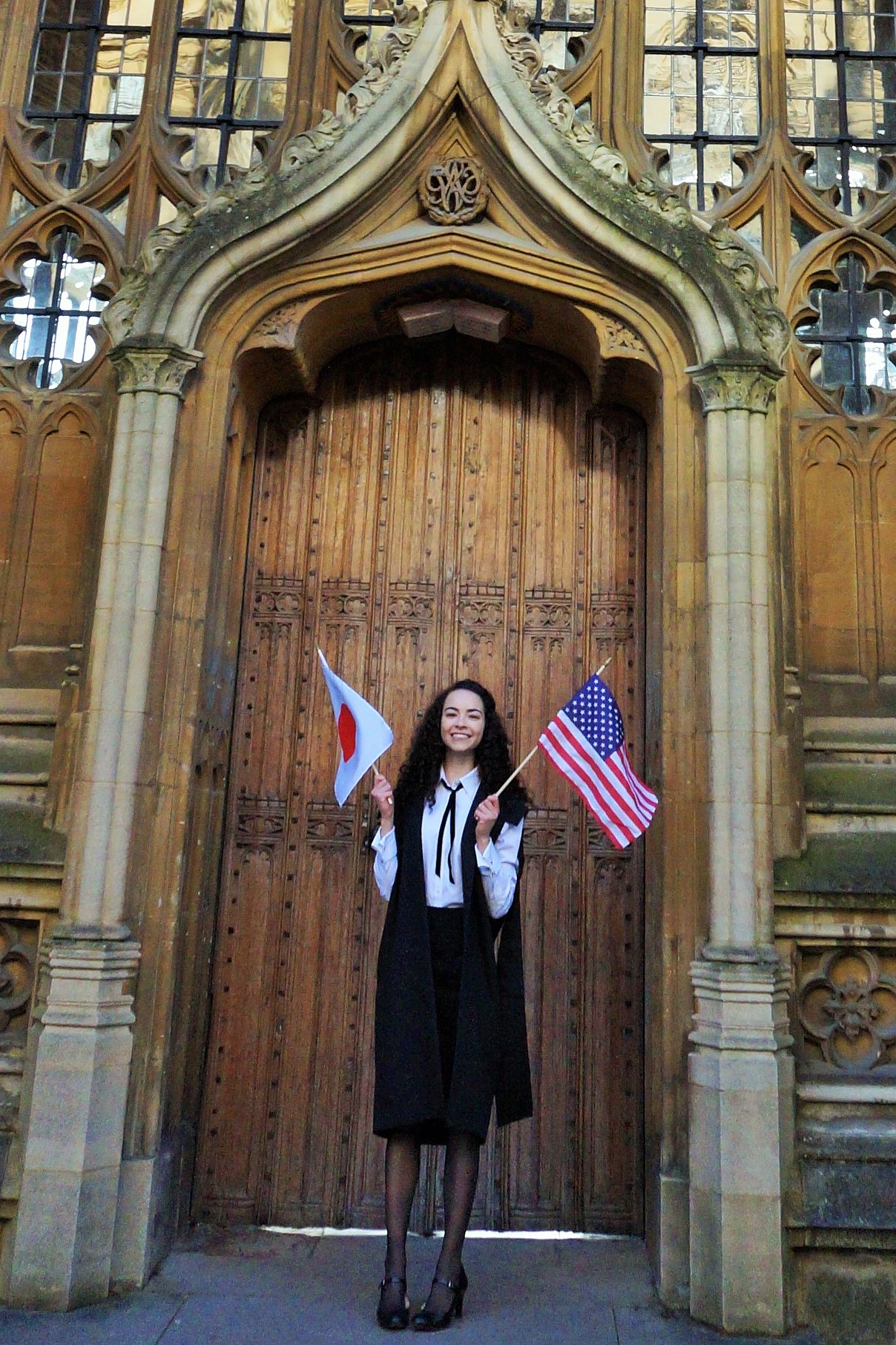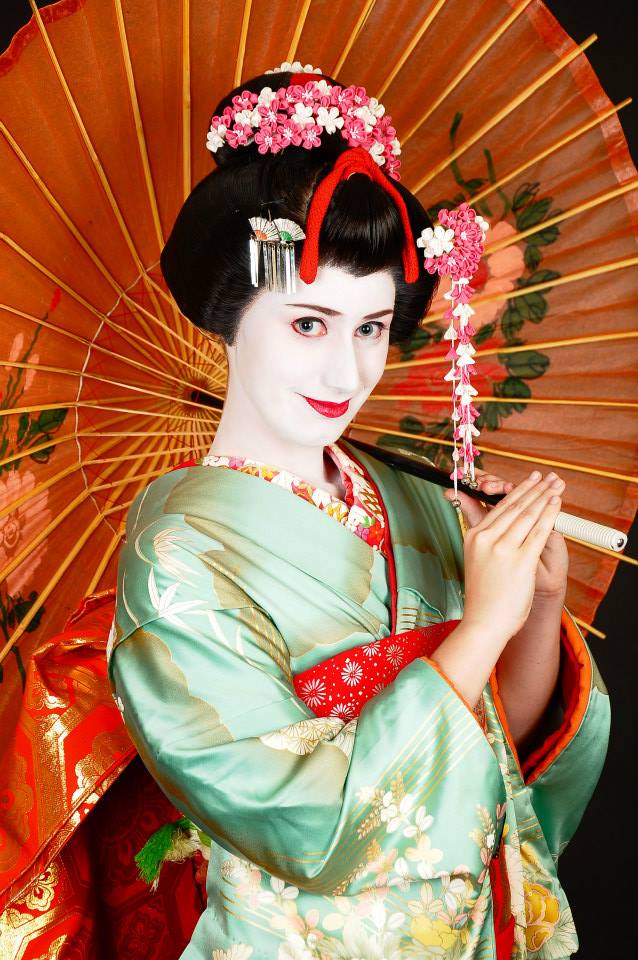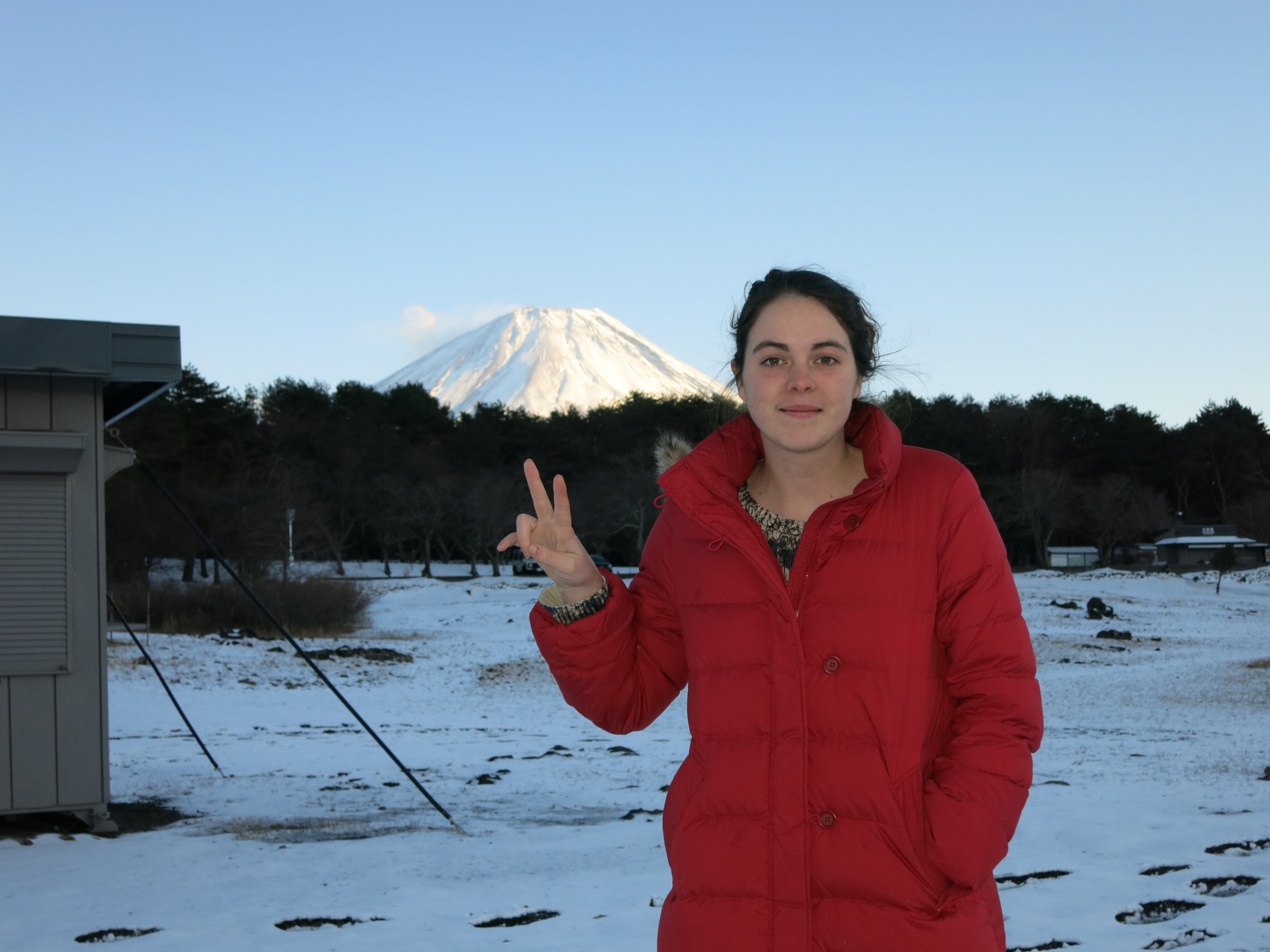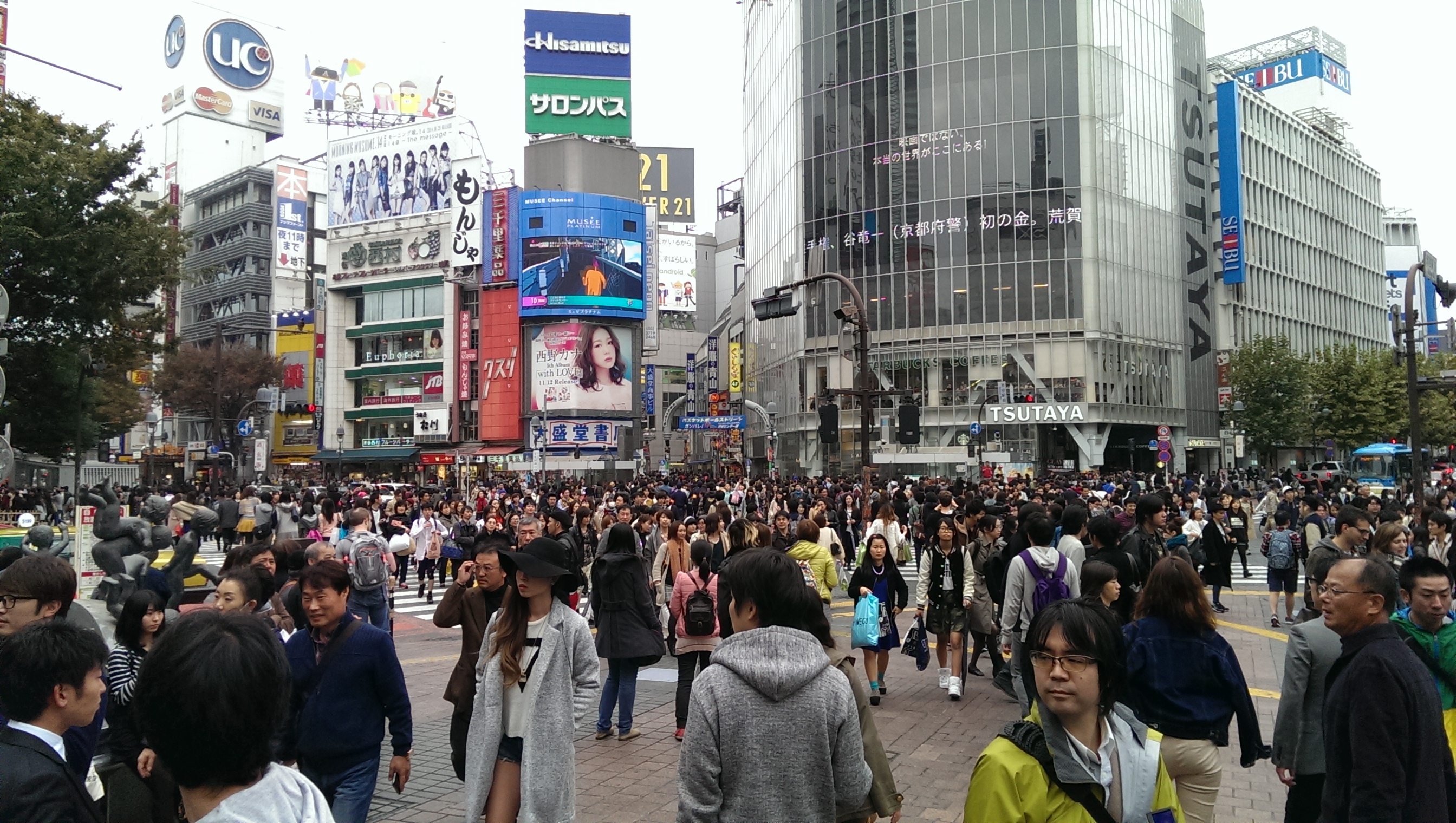Foreigners in Japan: student stories
International students in Japan and those who have already returned share their unusual stories and advice they wish they had known before going.
- Student life
- Study abroad
Share
In June 2015, Aaron Chapman travelled from his home in the UK to Japan, hoping to study for a masterŌĆÖs degree there the next academic year. His motivation was almost entirely selfless; he felt a duty to become a cultural ambassador.
ŌĆ£I feel like it is my mission to ensure that a good level of understanding happens between countries,ŌĆØ he says.
Aaron just completed his BA in religion, culture and society at the University of Central Lancashire, and credits the ŌĆ£Cool JapanŌĆØ movement of the past 10 years for igniting his passion for Japanese culture, history and spirituality.
HeŌĆÖs not alone. Of those who travel to Japan for international study, there is one trait that they all share: a deep attraction to Japanese culture. They value the opportunity to experience everyday life, and this motivation even trumps their desire to refine their language skills.
Despite the popularity of study abroad programmes among Japanese-culture enthusiasts, JapanŌĆÖs top universities lag behind other institutions in the Times Higher Education World University Rankings, in part because of low scores for global collaboration and the proportion of foreign students and staff.
Now JapanŌĆÖs Ministry of Education has launched an initiative to internationalise a select group of 37 universities. Each will receive $3.6 million (┬Ż2.35 million) annually for 10 years to boost their international standing. The project could lead to a dramatic increase in foreign academics at Japanese institutions, and a knock-on effect on the number of international collaborations and foreign students.
The international students who have attended a Japanese institution now feel an even greater responsibility to pass their advice on to subsequent applicants.

Natalia Doan wrote University of Oxford, and wrote her book as an alternative to guidebooks ŌĆ£that showed beautiful pictures of temples and castles, but didnŌĆÖt explain how to conduct a bank transfer on a machine with no English options, or how to communicate with the doctor when you have a fever and just started studying JapaneseŌĆØ.

The main resource for practical advice and cultural titbits is the internet. There is a wealth of information on Japanese university websites, international studentsŌĆÖ blogs and sites such as and .
Rose Telyczka, who also wrote a guidebook upon returning from Kobe University to Oxford, found the internet to be invaluable. She says: ŌĆ£I learned that Japanese deodorant is not the same as in the UK, instead it is more like a light perfume, so I made sure to bring my own supply for the duration! While my peers complained about the local deodorants, I was both metaphorically and literally cool and unfazed by it.ŌĆØ

The main difficulties when applying for international study are bureaucratic. Japanese government scholarships (JASSO and MEXT) are competitive, but are sometimes awarded automatically by an institution without any student application. The visa application involves a Certificate of Eligibility to prove financial security, and some university applications require a health certificate, which can oblige the student to pay up to ┬Ż550 for X-rays, eye tests and a full medical check-up.
Although all this can feel overwhelming, you will be supported by your home institution to ensure that you complete the application successfully.

ŌĆ£They seem to love paperwork,ŌĆØ says Lucy Tasker, who studied at Waseda University, Tokyo, in 2014 on exchange from Soas, University of London. ŌĆ£If you get one thing wrong on the paperwork, they send it back, so it was extremely important that it all be perfect.ŌĆØ
Forms must be presented in person at a Japanese embassy. James Wight made the trip to London from the Meiji Gakuin University next year. He recommends popping into the nearby Japan Centre in Piccadilly to stock up on Japanese books or food during the waiting time.
Deciding which university to attend is an important part of the process, since the university application requires an essay, comparable to the Ucas personal statement. This, alongside your grade point average, will factor heavily into where you are ultimately placed.
In addition to the location in Japan (often just ŌĆ£TokyoŌĆØ or ŌĆ£Not TokyoŌĆØ), a key consideration is whether foreign students will be able to take courses with Japanese students. Anton Bridge, from Soas, chose Hitotsubashi University in West Tokyo over a ŌĆ£prettierŌĆØ option in Kyoto for this reason.

Other students base their decision on practical factors, including rent costs, scholarship opportunities and travel connections. But wherever you end up, the experience is sure to be enriching and unforgettable. You will live either in dorms or with a local family, since finding accommodation independently as a foreigner is extremely difficult.
University life differs immeasurably from elsewhere, since Japanese students focus at least as much on extracurricular clubs (bukatsu) as on studies. For internationals, the academic pace is relaxed, and you will easily find time to join clubs and work part-time jobs.
ŌĆ£There is an idea in Japan that university is the ŌĆśSpring Break of your life ŌĆō jinsei no haruyasumiŌĆÖ,ŌĆØ says Ash Spreadbury, reflecting on his time at Keio University now that heŌĆÖs back at the University of Sheffield. It is common knowledge in Japan that universities are ŌĆ£hard to get into, but easy to graduate fromŌĆØ.
The experience is not without its unique challenges, particularly with respect to specific student needs. Mark Pendleton, a lecturer at SheffieldŌĆÖs School of East Asian Studies who also studied in Japan, emphasises that support for disabilities and mental health problems, and acceptance of LGBT and ethnic minority students, varies across institutions. He particularly recommends Okayama University, which runs JapanŌĆÖs largest gender clinic and encourages anti-racism activities. He suggests that you research universities carefully to find an appropriate fit.
Alice Fracchia has first-hand experience of JapanŌĆÖs failure to accommodate specific needs. She discovered that, unlike her home University of Oxford Brookes, Japanese institutions do not provide childcare or family support for students with children. Although she has now settled in Nagoya, Alice faced numerous obstacles when arranging for her partner and baby to join her, and still worries about the status of their short-term visas.
Studying in Japan is often a journey into the unknown. Nonetheless, most internationals quickly adapt to ŌĆ£bowing to quite literally everythingŌĆØ, as Alexander Boorman, who studied at Tokyo University of Foreign Studies last year, discovered. Other cultural differences include conversation etiquette (for example, keeping your voice lowered), complicated recycling procedures and the necessity to carry cash. And more surprises are always around the corner.
Jacob Nelson, from the Osaka International University. He was whisked off to │¦│¾Š▒░∙▓╣░ņ▓╣Ę╔▓╣-▓Ą┼Ź World Heritage Site to offer a foreignerŌĆÖs perspective on Japanese culture. Amid staged scenes of ŌĆ£foreignersŌĆÖ faux-pasŌĆØ, Jacob was filmed offering his thoughts on international relations as he visited local attractions including onsens (hot springs) in the Japanese Alps.
His role as a cross-cultural ambassador was confirmed on his return to Osaka, where he developed celebrity status, attracting a group of elderly Japanese fans in his local community.
JacobŌĆÖs particular experience might be unique, but it represents all the untapped opportunities that await you as a foreign student in Japan. ItŌĆÖs entirely unsurprising that students are often reluctant to leave and remain dedicated to Japanese cultural engagement back home. Many return to Japan for further study, becoming one of JapanŌĆÖs few foreign postgraduates and academics.
Their advice to prospective students is remarkably homogeneous: ŌĆ£donŌĆÖt worryŌĆØ ŌĆō the benefits by far outweigh any daunting practical difficulties. But whatever you do, make sure you practise your Japanese!

Useful resources:
Choosing universities
ŌĆō a non-exhaustive list of UK university courses that include Japanese study and time spent at a Japanese university
ŌĆō a guide to Japanese universities
Scholarships
ŌĆō awards some scholarships for international students
ŌĆō Competitive award for international students. Next application for undergraduates opens in January 2016, application currently open (May 2015) for postgraduates
Before you go
ŌĆō for information and visa applications
101-104 Piccadilly, London W1J 7JT
ŌĆō promotes cross-cultural Japan-Britain engagement, with a Japanese store and food hall on site
19 Shaftesbury Avenue, London W1D 7ED
Life in Japan
ŌĆō a foreignerŌĆÖs perspective on living in Japan
ŌĆō a practical guidebook by a Japan Studies postgraduate now based in the UK
